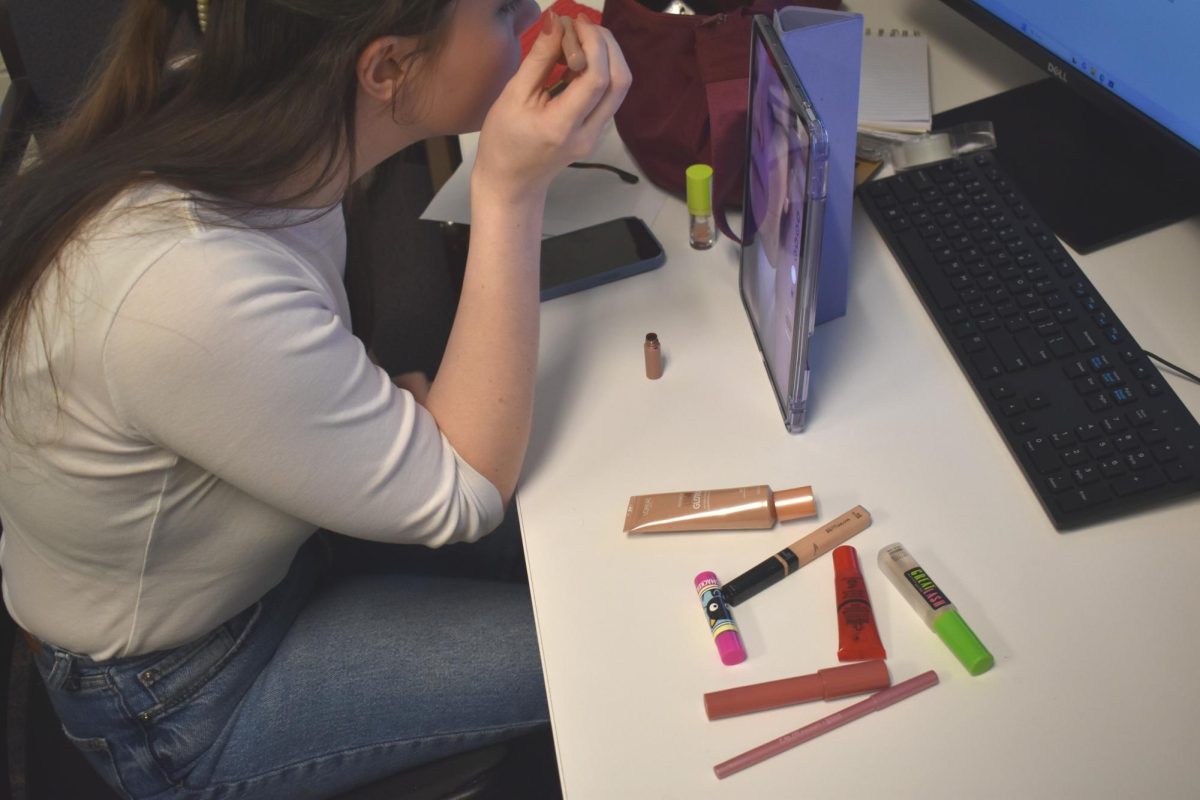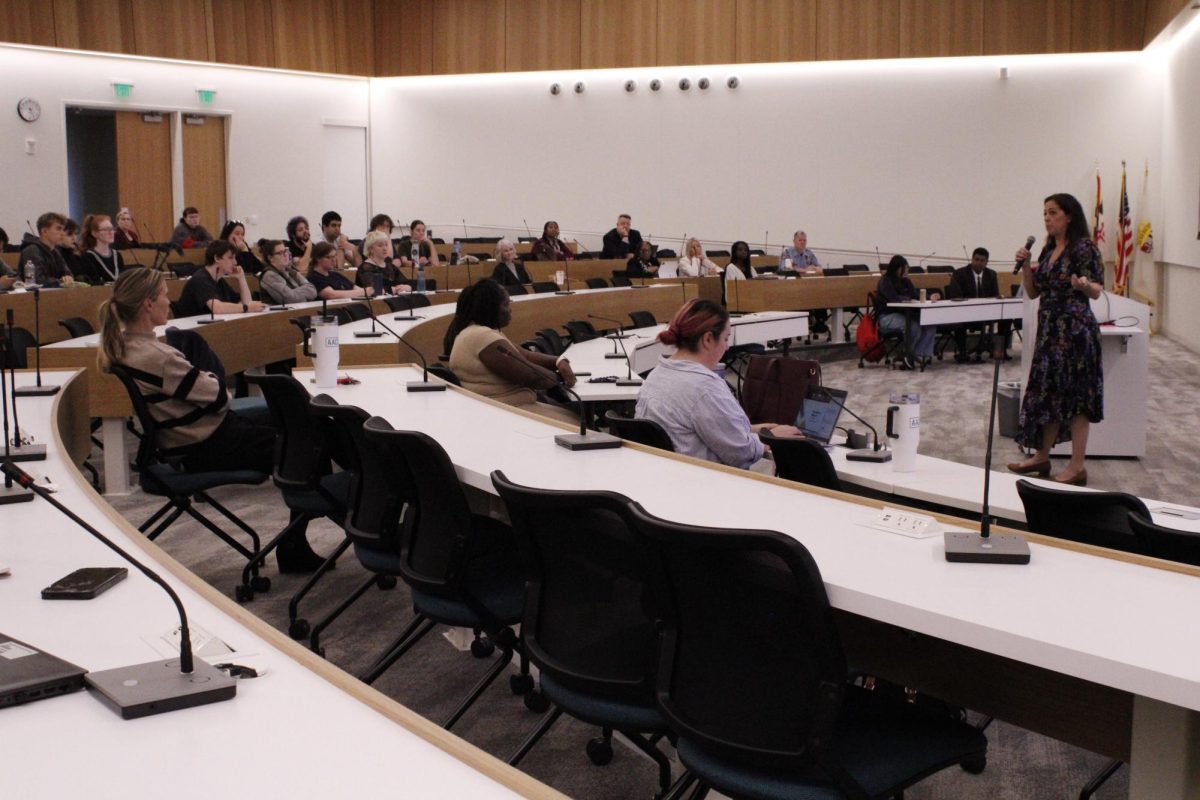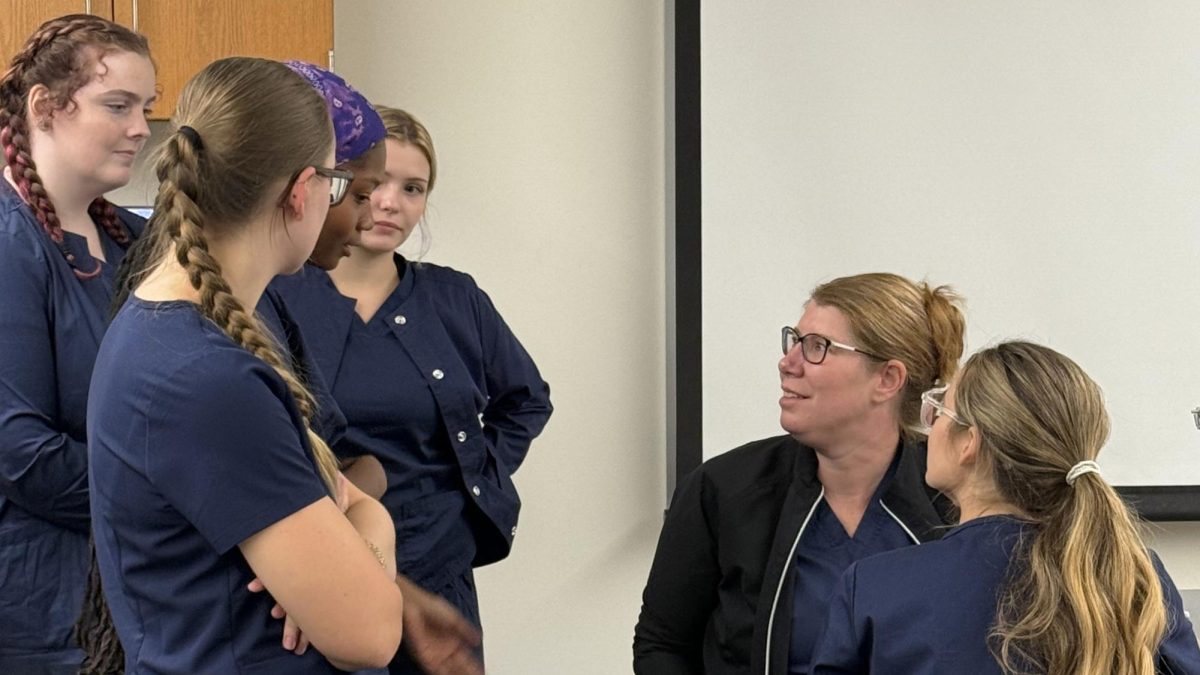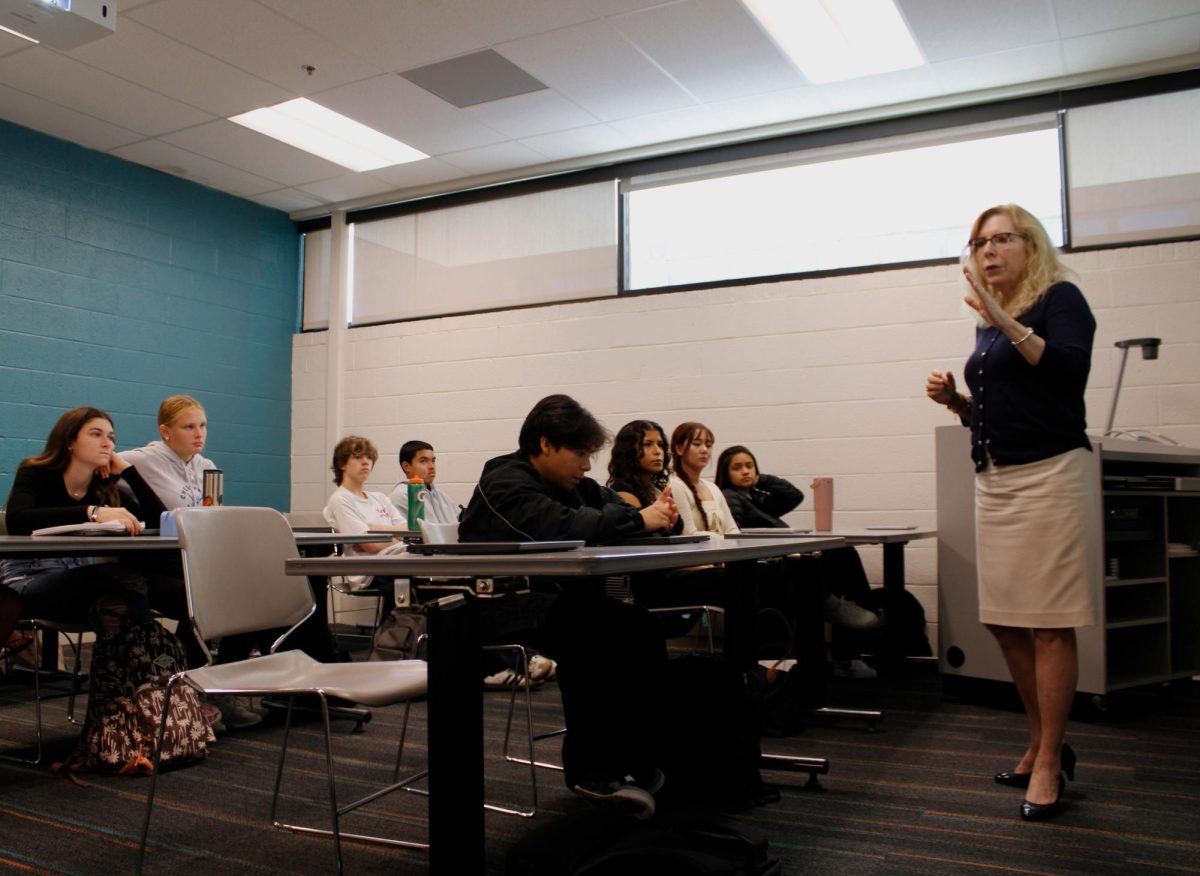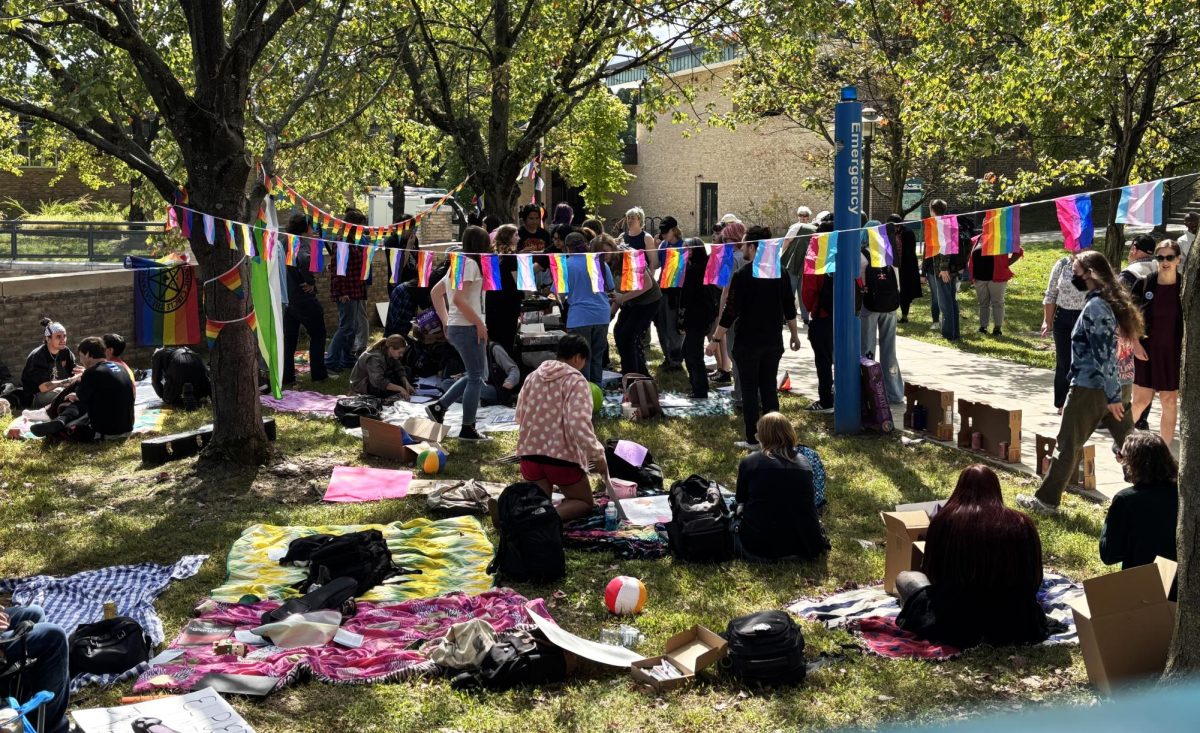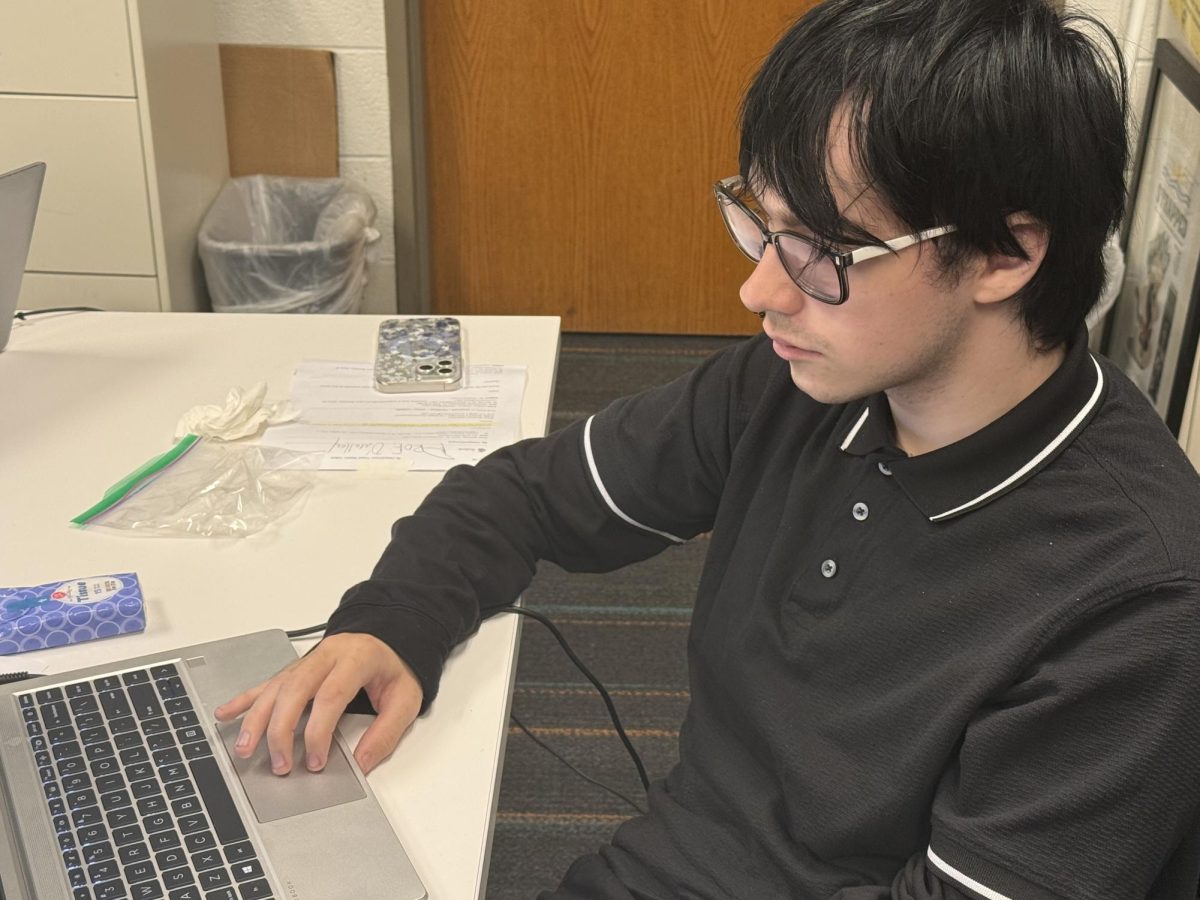AACC officials said in April they are not anticipating President Donald Trump’s executive orders will have much of an impact on campus, but students said they are worried.
Trump signed a March 20 order intended to dismantle the U.S. Department of Education, which is responsible for overseeing education policy and administering funding for programs and students.
“We are not currently aware of any plans to eliminate funding for current AACC grants and contracts that are … funded by the federal government,” Melissa Beardmore, AACC’s vice president for learning resources management, said. “We do not believe that the executive order to dismantle the Department of Education means that federal financial aid will be abolished.”
Beardmore said the college receives minimal federal funding and she does not anticipate that funding will be revoked.
Still, students said they worry the sweeping changes could have a lasting impact.
One week before Trump was sworn into office, Ismael Tamayo Sanchez, a first-year electrical student, told Campus Current he was nervous to see what would happen to the Department of
Education because it funds his mother’s job as a janitor for Anne Arundel County Public Schools.
“I feel like the government right now is very uncontrolled and it feels like someone’s grabbing a bunch of darts and throwing them at a board,” Jonathan Willis, a first-year radiology student, said. “It’s not regulated. It’s not making sense.”
Jason Kalshoven, a third-year film student, said he is confused about Trump’s end goal for putting tariffs—a tax on imported goods—on Canada and China.
Trump has imposed tariffs of up to 145% on on all goods China sends into the U.S. Canada is facing a 25% tariff on exports excluding energy.
“As a college student,” Willis said, “it’s very scary. Just like finances and stuff like that.”
Willis said when he isn’t in class or attending club meetings, he works part-time at CVS, where he makes minimum wage.
Some, like Ev Dahl, a third-year data science student, said prices are already unmanageable.
“Everything is going to get super expensive, Dahl said. “A lot of makeup ingredients are imported, so I’m expecting that to go up [in price].”
Willis said he is disappointed with how the Trump administration is treating other countries by adding excessive tariffs as a trade strategy.
“I like to have a country where we are the melting pot,” Willis said. “We are a country that has other countries import stuff here, and we get to have different stuff. And if we don’t have the impact of other countries, I think we will be lost.”
Last year, U.S. imports from China rose to $462.62 billion, according to the United Nations Commodity Trade Statistics Database.
“We’re living in the darkest timeline,” Kalshoven said.
Beardmore said she recognizes that this is a stressful time for students and community members.
“We are committed to ensuring that all members of our community have access … to the assistance they need, such as financial aid and counseling,” Beardmore said.



